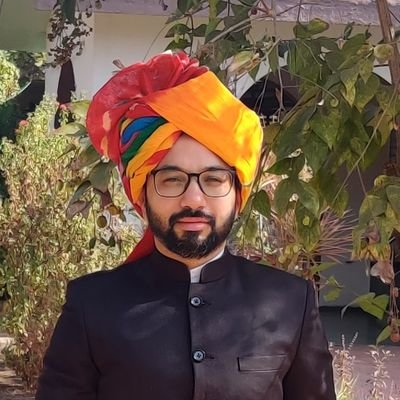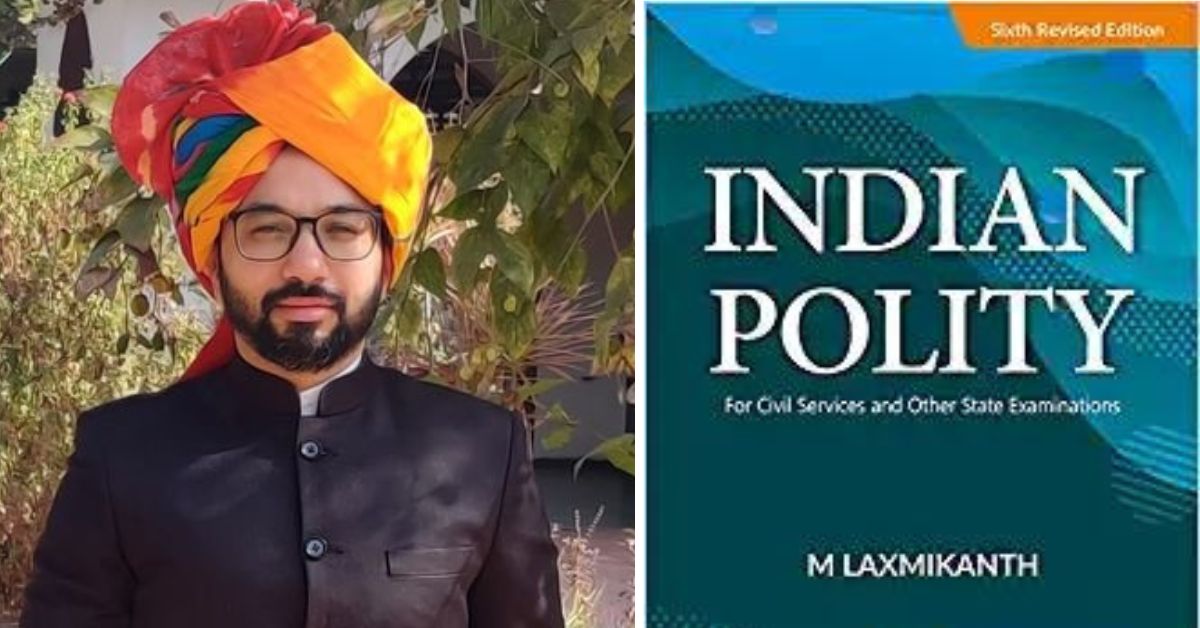Every UPSC CSE aspirant knows how important the subject polity is. A solid foundation in polity and governance is crucial for an aspirant who is looking to secure a good rank in the examination. It will also help during the interview stage.
Manjul Shashi Jindal, an Indian Administrative officer who secured an All Indian Rank (AIR) of 53 in the 2017 UPSC CSE and is currently posted as CEO Zilla Parishad, Jalna.
He often takes to Twitter to share tips and strategies for aspirants preparing for the examination.

A recent Twitter thread reinforces the importance of being well prepared in polity. He said that a large number of questions in both the prelims and mains paper are from polity. He also mentions that this is a scoring subject.
He breaks this down into four parts:
1. What, how much, when:
This covers what sources to study from, how much time to dedicate to this subject, how to change preparation strategy from prelims to mains, how much time to dedicate to this subject and the importance of mocks and previous year’s question papers.
He recommends studying the NCERT class 10 book called ‘Constitution at Work.’ Along with this, Indian Polity by Laxmikant and his own set of notes. He also says that polity as a subject should be among the first three that one tackles while preparing. As far as the time to be allotted to this subject, he recommends one spends two full months preparing for it.
1. Basics:
Sources, when to start, how much time to dedicate, how prelims Qs are different from Mains and what’s the importance of mocks and PYQs pic.twitter.com/XTrJPx6sUN— Manuj Shashi Jindal (@manujjindalIAS) September 24, 2022
2. How to use resources:
While preparing for Laxmikant’s book, Manjul recommends not to go chronologically but follow his method of study instead. Following his method of study, he says will be more contextual and easier to even remember and understand in the long run.
While the book chapters deal with the history and making of the constitution feature, in the beginning, Manjul recommends only coming to these chapters towards the end of one’s preparation.
2. How to read and master Laxmikanth
Note: don’t read it chronologically but in this order I suggest.
It will be more contextual when you read like this, and easier to even remember and understand… pic.twitter.com/iX8WzPpgHw— Manuj Shashi Jindal (@manujjindalIAS) September 24, 2022
3. Key areas of focus:
Some of the areas that aspirants must necessarily focus on include, understanding the structure of our political system, understanding constitutional dimensions, being well updated on important Supreme Court judgments, especially the landmark orders passed and a focus on the previous year’s papers.
This will give aspirants an idea of the kind of questions that UPSC expects the aspirants to be prepared for.
3. How to read Laxmikant continued.
Historical background, and making of the constitution which are the first chapters should be read last! pic.twitter.com/QRka1RADZv— Manuj Shashi Jindal (@manujjindalIAS) September 24, 2022
4. Get your fundamentals right:
Reiterating the importance of NCERT’s Indian Constitution at Work, Manjul says that to ensure that one’s fundamentals on the subject are clear, this text must be used for preparation. Only after one has read this thoroughly should they venture into preparing from Laxmikanth’s textbook.
(Edited by Yoshita Rao)
If you found our stories insightful, informative, or even just enjoyable, we invite you to consider making a voluntary payment to support the work we do at The Better India. Your contribution helps us continue producing quality content that educates, inspires, and drives positive change.
Choose one of the payment options below for your contribution-
By paying for the stories you value, you directly contribute to sustaining our efforts focused on making a difference in the world. Together, let's ensure that impactful stories continue to be told and shared, enriching lives and communities alike.
Thank you for your support. Here are some frequently asked questions you might find helpful to know why you are contributing?


Check what other members are talking about -
Dear Sir,
I have one filed and published patent which is awaiting for the grant.
The key features of the patent are as follows.
1.24X7 water supply across the country and globe.
2. It do not require the conventional power supply as it works on wind energy.
3. Multiple water sources can be concted.
4. Even water scares borewells can be effectively used.
5. Complete farming land across the country and globe can be irrigated.
6. By the way we can supply 24 X 7 water supply across the country and even in any corner of the world.
7.initial investment for one structure is approximately Rs 100000/-
8. Zero maintenance costs for life time.
9. Hybrid system can also be used.
Please contact
Sidramappa Dharane
Patentee
9284385485
9284093972
9890283390
Email
dr.sidramappa@gmail.com
dr.appari@gmail.com
Note: Please respond
Even it works in heavy drought and moreover it uses all the existing resources thereby the every citizen’s and national economy will enhance.
Thanks
Dear Sir,
I have one filed and published patent which is awaiting for the grant.
The key features of the patent are as follows.
1.24X7 water supply across the country and globe.
2. It do not require the conventional power supply as it works on wind energy.
3. Multiple water sources can be concted.
4. Even water scares borewells can be effectively used.
5. Complete farming land across the country and globe can be irrigated.
6. By the way we can supply 24 X 7 water supply across the country and even in any corner of the world.
7.initial investment for one structure is approximately Rs 100000/-
8. Zero maintenance costs for life time.
9. Hybrid system can also be used.
Please contact
Sidramappa Dharane
Patentee
9284385485
9284093972
9890283390
Email
dr.sidramappa@gmail.com
dr.appari@gmail.com
Note: Please respond
Even it works in heavy drought and moreover it uses all the existing resources thereby the every citizen’s and national economy will enhance.
Thanks
Umbrella type mashroom